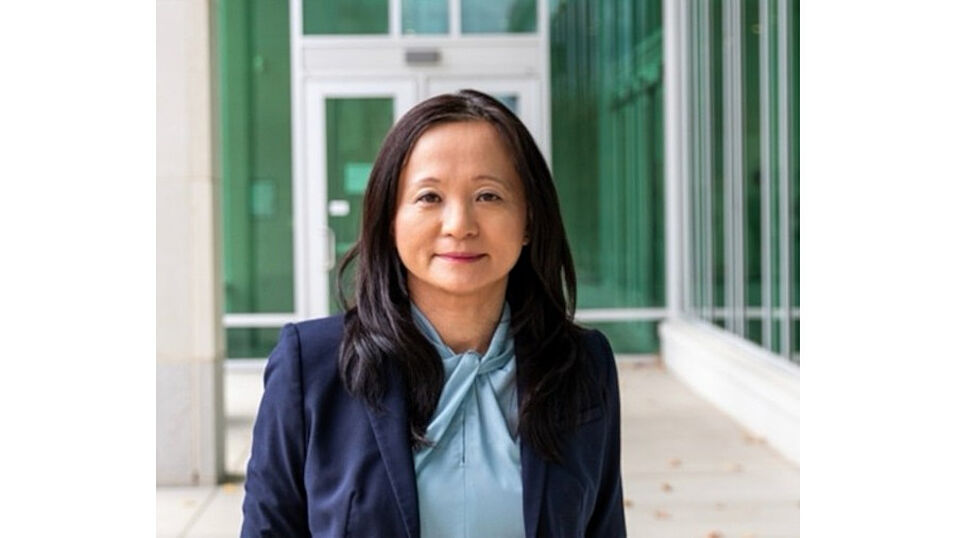Gu’s presence has enriched our academic community through engaging teaching and meaningful dialogue. It has been a pleasure having Chien-Juh Gu (Professor of Sociology at Western Michigan University, USA) with us at the Department of Sociology. We wish her continued success in her scholarly and professional endeavors and hope that this is not a goodbye, but a “See you again soon.”
In our interview, Chien-Juh Gu talks about her experiences in Vienna, her fascination with sociology and the people who have influenced her academically:
1. How was your summer semester 2025 at the University of Vienna/Faculty of Social Sciences/Department of Sociology in terms of teaching?
I taught two graduate seminars: Immigration and Social Inequality and Gender and Health at the University of Vienna. The students in both courses were engaging and energetic, making the experience thoroughly enjoyable. Although the courses used American literature, I encouraged students to apply the material to their own research projects. Through their discussions, presentations, and research papers, I gained valuable insights into Austrian society.
2. …in terms of your personal research?
My research focused on immigrant entrepreneurship in Austria. During my Fulbright grant period, I conducted 22 in-depth interviews and over 100 hours of ethnographic fieldwork in the Taiwanese immigrant community. This project broadened the scope of my research by incorporating a comparative perspective. The insights I gained from Austrian colleagues also deepened my understanding of the immigration context in Europe.
3. What was the most striking experience during your time in Vienna?
The most striking experience during my time in Vienna was learning about Austrian society and culture by living here as a female, non-German-speaking immigrant of color. From navigating an entirely different environment to interpreting the meaning of social interactions in various contexts, I was pushed to observe attentively, reflect deeply, and adapt flexibly. Additionally, the significant differences between Austrian and American academia challenged me to think more critically about research and higher education.
4. How did you like living here?
I enjoyed living in Vienna, a beautiful city rich in art and culture. The museums, coffee houses, and Gothic architecture are simply amazing. Strolling through the streets feels like an artistic experience, and walking along the Danube River while listening to Billy Joe’s song “Vienna” is incredibly soothing.
5. What are your plans once you get back to Michigan?
I will resume my duties as a Professor of Sociology at my university and plan to share my Fulbright experience with my colleagues. Upon my return, my top priority will be completing my next book, From Religious Minority to Racial Minority: Burmese Christian Diaspora in America’s Heartland, which is under contract with a university press.
10 quick Q&As:
1. Wiener Schnitzel or Krautfleckerl?
Wiener Schnitzel
2. Spring, summer, autumn or winter?
Autumn is a season of poetry.
3. Reading or writing?
Writing
4. City life or rural life?
Rural life
5. Podcasts or documentaries?
Podcasts
6. My role model:
Steve Gold (a renowned American sociologist specializing in immigration, ethnic economies, and the Jewish Diaspora). He is my former professor and a dear friend. Among all the sociologists I have known personally, Steve is the most well-read—his mind is like a walking library! In addition to producing influential work, Steve is also kind and supportive of junior scholars. His knowledge, wisdom, and encouragement have been a vital source of support throughout my academic journey, both as a student and as a scholar. Steve is the scholar I look up to and strive to emulate.
7. This sociologist/scientist has influenced me:
Arlie Hochschild (a renowned American sociologist specializing in social psychology, culture, family, and emotion). Hochschild is Steve Gold’s former professor, whom I affectionately call “my academic grandma.” Her keen cultural observations, attentiveness to nuanced contextual factors, theoretically grounded arguments, and intuitive exploration of emerging social phenomena exemplify the best qualities of American sociology. Her approach to sociological research has had a significant influence on my own work.
8. I’m currently reading:
Ethnic Church Meets Megachurch: Indian American Christianity in Motion by Prema Kurien
9. I’m currently working on:
My third book, From Religious Minority to Racial Minority: Burmese Christian Diaspora in America’s Heartland (under contract with a university press)
10. What fascinates me about sociology:
Growing up, I had countless questions about why people behave the way they do and how society operates. It wasn’t until my freshman year, when I took Introduction to Sociology, that I discovered the key to answering those questions. Since then, I have not stopped studying sociology—it empowers me to think critically, explore deeply, and continuously satisfy my curiosity.
Read more about Fulbright Fellow: Dr. Chien-Juh Gu

